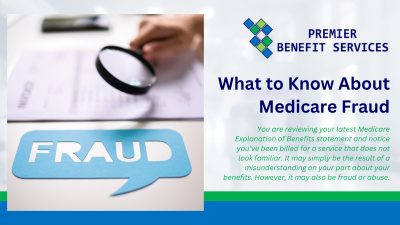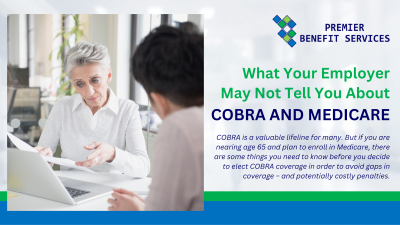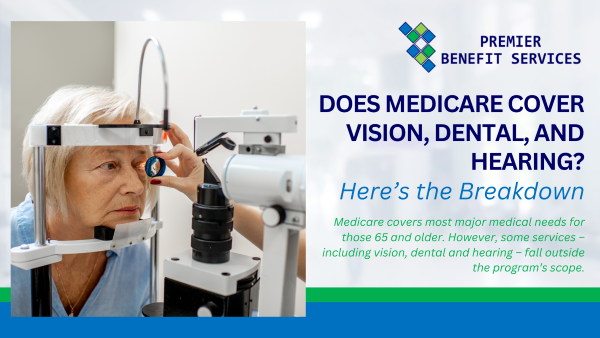What to Know About Medicare Fraud
You are reviewing your latest Medicare Explanation of Benefits statement and notice you’ve been billed for a service that does not look familiar. It may simply be the result of a misunderstanding on your part about your benefits. However, it may also be fraud or abuse.

Medicare fraud and abuse can happen anywhere.
The Centers for Medicare and Medicaid Services (CMS) – the Federal agency that administers the Medicare Program – defines fraud as “the intentional deception or misrepresentation that the individual knows to be false or does not believe to be true.” Common examples of suspected fraud or abuse include:
- A provider that knowingly prescribes excessive or unnecessary tests and services.
- A provider that charges Medicare twice for a service or item that you only got once.
- A person who steals your Medicare Number or card and uses it to submit fraudulent claims in your name.
- A company that offers you a drug plan that Medicare hasn’t approved.
It’s important to note that an insurance agent who is not above board or insists you enroll in one plan over another is not only unscrupulous, but also may be committing fraud.
Fraud is driving up the cost of health care.
Unfortunately, the rise in fraud and abuse is resulting in higher health care costs and taxes for everyone. Medicare and Medicaid fraud has been estimated to cost taxpayers over $100 billion dollars a year, while putting beneficiaries’ health at risk. CMS works with individuals, entities, and law enforcement agencies to detect and prevent fraud and abuse, but the losses are staggering. We recently heard about an MRI company operating in multiple states that submitted millions of dollars in claims for services they never provided. They were shut down, but Medicare has yet to recoup the funds.
Take steps to protect yourself or your loved ones from Medicare fraud.
STEP 1:
Understand your Medicare plans before you enroll. Make sure you know what is covered and what is not. An experienced Medicare agent will give you the guidance you need to make educated decisions about the type of coverage that’s right for you. With over 20 years of experience, Premier Benefit Services promises you an honest and eye-opening conversation about how Medicare works and what your choices are.
STEP 2:
Protect your Medicare number and other personal information.
- Don't share your Medicare card, Medicare Number, Social Security card, or Social Security Number with anyone except your healthcare providers or people you know need to have it.
- Never give out your Medicare Number in exchange for special offers like free medical care or equipment.
- Never let someone use your Medicare card and never use anyone else’s card.
As a licensed insurance provider, Premier Benefit Services is required to protect our client information, and we ensure that everything from our cell phones to computers meet strict security standards.
STEP 3:
Review your statements carefully. Record your appointments and services and save the receipts and statements from your providers. Then review your statements regularly to make sure the details correctly match your records.
STEP 4:
Report suspected fraud. Call 1-800-MEDICARE and have your Medicare card or Medicare Number and the claim on hand. You can also report suspected fraud anonymously by contacting the Office of the Inspector General (OIG) at tips.oig.hhs.gov or by calling 1-800-HHS-TIPS (1-800-447-8477). The OIG record systems collect no information that could trace the complaint to you.
Remember: You have the right to know everything about your medical care, including costs billed to Medicare. So don’t hesitate to ask questions if you aren't sure of something. To learn more about Medicare fraud, visit https://www.medicare.gov/basics/reporting-medicare-fraud-and-abuse.
New to Medicare? Find out how to get the coverage you need.
Contact Bruce today to schedule a complimentary consultation.










